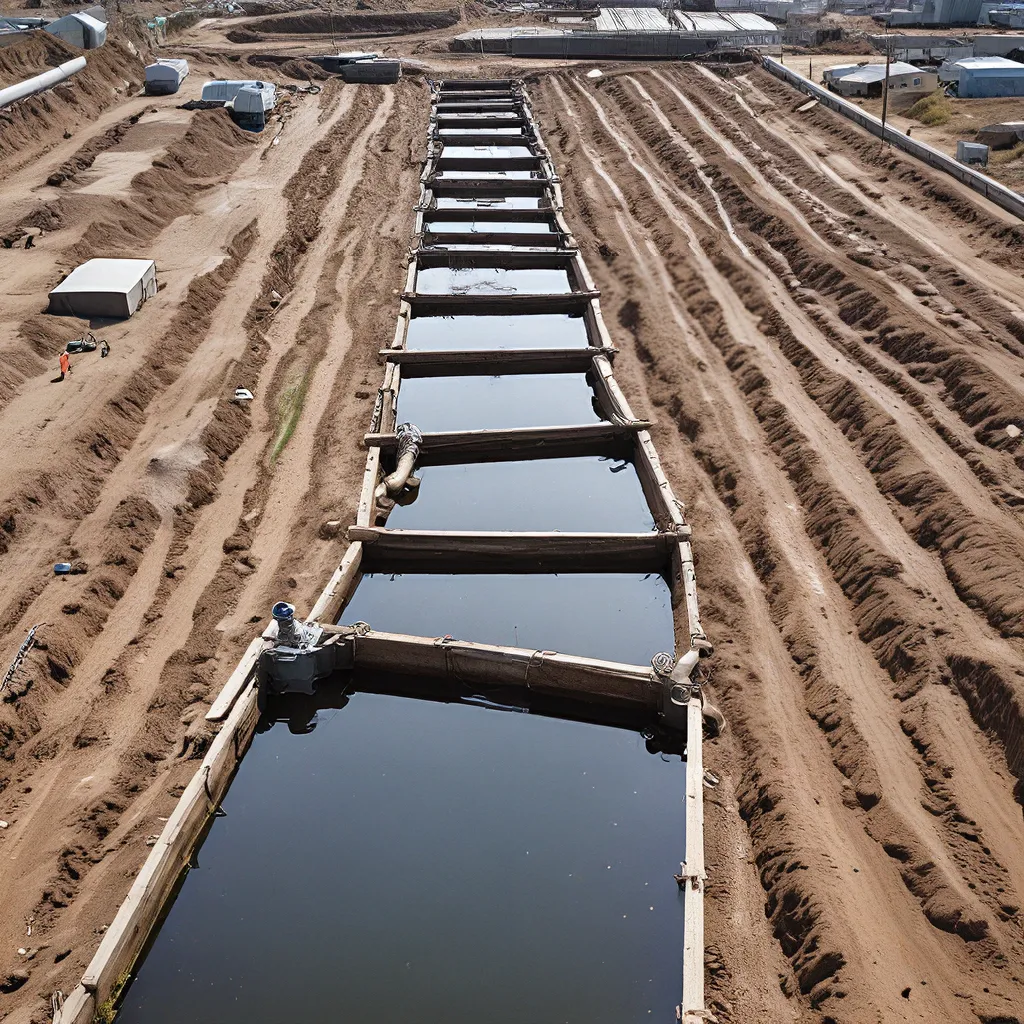
Rethinking Wastewater: A Paradigm Shift Towards Sustainability
As the world grapples with the ever-growing challenges of resource scarcity and environmental degradation, the wastewater treatment industry finds itself at a critical juncture. Traditional models of wastewater management, focused solely on the disposal of waste, are quickly becoming outdated and unsustainable. However, a promising new paradigm is emerging – one that embraces the principles of the sharing economy and explores novel ways to leverage wastewater as a valuable resource.
I’ve always been fascinated by the transformative potential of the sharing economy. The way it empowers individuals to collaborate, share, and unlock hidden value in underutilized assets is truly inspiring. And as I delved deeper into the world of wastewater treatment, I couldn’t help but wonder: what if we applied these same principles to the way we manage our liquid waste?
The Rise of the Wastewater Sharing Economy
The sharing economy has disrupted countless industries, from transportation to hospitality, by enabling the efficient utilization of resources that were previously underutilized. Why not apply these same principles to the world of wastewater treatment? After all, wastewater is a valuable resource, containing a wealth of recoverable materials, energy, and nutrients that can be harnessed for the benefit of society.
Recent research has shown that the adoption of sharing economy models in the wastewater treatment industry can lead to significant environmental and economic benefits. By incentivizing the collaborative utilization of wastewater infrastructure and resources, we can unlock new avenues for resource recovery and circular economy initiatives.
Innovative Service Models: Towards a Sustainable Future
One of the most promising developments in the wastewater sharing economy is the emergence of innovative service models that challenge the traditional linear approach to wastewater management. These models reframe wastewater as a valuable commodity rather than a waste product, and they harness the power of digital platforms and collaborative networks to facilitate the exchange and utilization of wastewater-derived resources.
For example, some pioneering companies are leveraging the sharing economy to connect wastewater producers with potential users, enabling the redistribution of treated wastewater for purposes such as irrigation, industrial processes, or even direct potable reuse. This not only reduces the burden on freshwater resources but also creates new revenue streams for wastewater treatment providers.
Another innovative model involves the collaborative management of wastewater infrastructure, where multiple stakeholders – such as municipalities, industrial facilities, and even individual households – share the costs and responsibilities of operating and maintaining the system. This collective approach to wastewater management can lead to increased efficiency, better resource utilization, and more equitable access to wastewater treatment services.
Overcoming Challenges: Navigating the Complexities of the Wastewater Sharing Economy
Of course, the transition to a wastewater sharing economy is not without its challenges. Regulatory frameworks, technological limitations, and cultural resistance to change can all pose significant hurdles. But I believe that with a collaborative and innovative mindset, we can overcome these obstacles and unlock the immense potential of this emerging paradigm.
Some experts suggest that regulatory bodies may need to update policies and guidelines to better accommodate the decentralized and collaborative nature of sharing economy models in the wastewater industry. And technological advancements, such as improved sensor networks, data analytics, and blockchain-enabled traceability, can help address issues of trust, transparency, and accountability that are critical for the success of these new service models.
Furthermore, cultural shifts will be necessary to overcome the stigma associated with wastewater and to foster a greater appreciation for its value as a renewable resource. This will likely require extensive public education, community engagement, and the active participation of all stakeholders in the wastewater ecosystem.
The Future is Fluid: Embracing the Wastewater Sharing Economy
As I reflect on the transformative potential of the wastewater sharing economy, I can’t help but feel a sense of excitement and optimism. By rethinking the way we manage our liquid waste, we have the opportunity to unlock a circular economy of resources, reduce our environmental impact, and create more resilient and equitable wastewater treatment systems.
Of course, the path ahead is not without its challenges, but I believe that the rewards are well worth the effort. With creativity, collaboration, and a commitment to sustainability, the wastewater treatment industry can lead the way in building a more resource-efficient and environmentally responsible future.
And that’s where Alpha Wastewater comes in. As a pioneer in the wastewater sharing economy, they are at the forefront of this exciting transformation, leveraging innovative technologies and collaborative service models to unlock the true value of wastewater. I encourage you to explore their services and join me in shaping the future of wastewater management.
The future of wastewater treatment is fluid, and the sharing economy is poised to redefine the way we think about and manage our liquid waste. So let’s dive in, roll up our sleeves, and embrace the possibilities** that lie ahead.